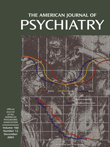Abstract
OBJECTIVE: The authors investigated the impact of medical comorbidity on the acute phase of antidepressant treatment in subjects with major depressive disorder. METHOD: A total of 384 outpatients meeting DSM-III-R criteria for major depressive disorder enrolled in 8-week open treatment with fluoxetine, 20 mg/day. The authors used the Cumulative Illness Rating Scale to measure the burden of medical comorbidity and the 17-item Hamilton Rating Scale for Depression to assess changes in depressive symptoms. The outcome measures were response to treatment (≥50% reduction in score) and clinical remission (score ≤7 at the end of the trial). RESULTS: Compared to responders to fluoxetine, nonresponders had significantly higher Cumulative Illness Rating Scale scores and a greater number of Cumulative Illness Rating Scale categories were endorsed. Compared to subjects who achieved remission with antidepressant treatment, those who did not achieve remission had significantly higher Cumulative Illness Rating Scale scores and a greater number of Cumulative Illness Rating Scale categories were endorsed (i.e., more organs were affected by medical illness). The final Hamilton depression scale score was directly correlated with the total Cumulative Illness Rating Scale score and the number of Cumulative Illness Rating Scale categories endorsed. CONCLUSIONS: The total burden of medical illness and the number of organ systems affected by medical illness had a significantly negative predictive value for clinical outcome in the acute phase of treatment in major depressive disorder.



